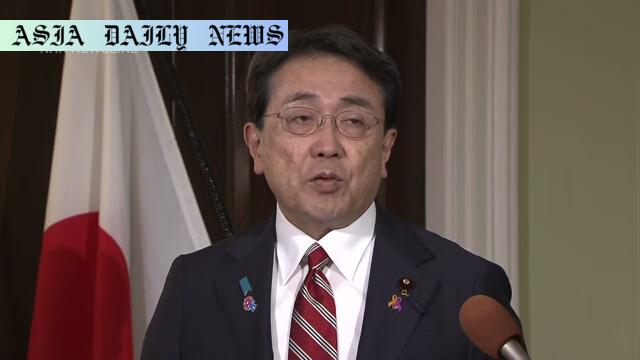Tariffs – Japan and US aim for key trade resolution ahead of G7 Summit.
- Japan and the US are preparing for another trade discussion round this week on tariff measures.
- Both nations are pushing for progress as their leaders are expected to meet at next month’s G7 Summit in Canada.
- Japan’s Economic Revitalization Minister Akazawa reiterated the importance of reviewing tariffs during the recent talks in Washington.
- US Treasury Secretary Scott Bessent was absent from the third round of consultations, despite continued efforts for high-level discussions.

Japan and US Resume Crucial Tariff Negotiations
Japan’s top trade negotiator is set to visit the US for another round of discussions aimed at addressing longstanding tariff disagreements. Both nations are focusing on resolving these trade issues before their leaders’ expected meeting at the upcoming G7 Summit in Canada. Economic Revitalization Minister Akazawa Ryosei, representing Japan, has been proactive in urging the US to reconsider existing tariff measures that have impacted the trade relationships between the two countries.
During his recent visit, Akazawa met with US Commerce Secretary Howard Lutnick and Trade Representative Jamieson Greer. Japan’s request emphasizes the need for the US to review its tariff policies, which have cast a shadow over bilateral trade. However, despite ongoing efforts, progress has been slow. The absence of US Treasury Secretary Scott Bessent during the third round of trade negotiations further complicated discussions, although both sides remain optimistic about achieving progress in upcoming sessions.
The Pressure to Deliver Results Ahead of the G7 Summit
With the G7 Summit drawing closer, Japan and the US are under increasing pressure to present a unified stance regarding tariffs and trade practices. Minister Akazawa has expressed hope that the summit provides an opportunity for Prime Minister Ishiba Shigeru and President Donald Trump to move toward a resolution. Both leaders have stakes in ensuring that their nations’ economic ties remain stable despite tensions over tariffs. As discussions advance, observers are keenly watching how these negotiations impact diplomatic and economic relations.
The stakes are high for both economies, as tariffs affect various industries, including automobiles, agriculture, and technology. Reaching an agreement would signal significant progress not just for Japan and the US, but also for global stakeholders monitoring these developments closely. However, without the active involvement of key figures like Secretary Bessent, achieving meaningful outcomes may require additional rounds of high-level consultations beyond this week.
Future Outlook: Striving for Consensus
As Minister Akazawa sets his sights on the next set of negotiations, he has expressed the importance of maintaining the momentum established through ongoing high-level talks. Both sides are reportedly open to discussions that go beyond tariff revisions, potentially exploring broader economic collaboration. Experts suggest that any agreements made before or during the G7 Summit could establish a framework for resolving contentious trade policies moving forward. With leaders of the world’s major economies present, the summit is poised to serve as a major platform for reconnecting and fostering trust between nations.



Commentary
Trade Talks: A Pivotal Moment for Japan-US Relations
The resumption of trade negotiations between Japan and the US brings into focus the complex dynamics underpinning their economic relationship. Trade disputes involving tariffs often have far-reaching consequences for industry stakeholders, government policymakers, and ordinary citizens alike. In this case, the issue resonates deeply within both countries, as industries affected by tariffs await diplomatic resolutions. Such negotiations are never easy, but they highlight the need for continued dialogue and collaboration.
The Role of Leadership in Resolving Trade Tensions
It is clear that leadership on both sides will play a critical role in guiding these discussions to a successful resolution. Prime Minister Ishiba Shigeru and President Donald Trump’s anticipated discussion during the G7 Summit underscores the importance of addressing economic grievances at the highest levels. Leaders in Japan and the US recognize that global economic stability often necessitates compromise, especially between major players in the international market. Observers will hope that progress in these talks sets a positive precedent for other nations currently entangled in trade disputes.
A Broader Perspective on Economic Collaboration
While the current discussions focus on specific tariffs, they also present an opportunity to broaden trade partnerships and economic cooperation between Japan and the US. Both nations have much to gain from easing tensions and working towards mutual benefits. A successful resolution in this ongoing situation could pave the way for innovative collaborations across sectors, helping to safeguard long-term economic stability. Progress in these discussions would serve as a beacon for diplomatic and economic negotiation strategies worldwide.